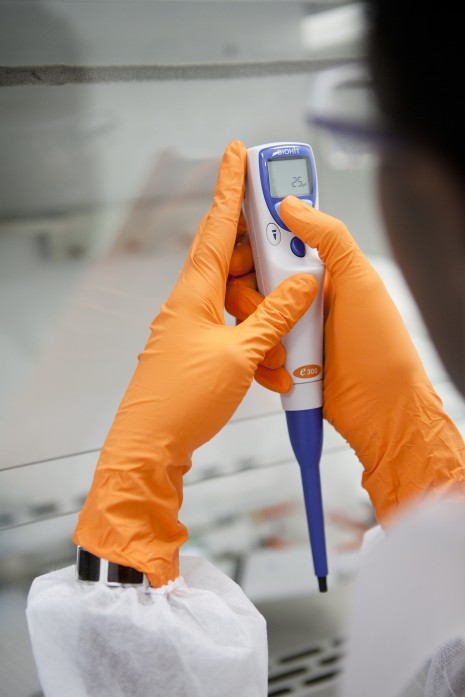Preclinical Development
We support our clients in designing their studies in accordance with international guidelines and methods validation by developing intelligent designs for the testing that will meet the expectations of the authorities and that are designed the minimum required development for the forthcoming clinical testing. We perform the studies in full compliance with Good Laboratory Practices (GLP) regulations and provide detailed study reports to support your regulatory submission.
The primary objective of your preclinical evaluation is to assess the toxicity and efficacy for your drug candidates providing you with accurate information of what can achieve your asset during the clinical trial afterwards.
GenoSafe has a long and unique experience for carrying out the analytical testing of biological products with a special focus on novel therapies such as gene and cell therapies.
Our main services
Biodistribution study
Gene expression analysis
Protein analysis
Immunogenicity assessment
Drug formulation evaluation
Germline transmission studies
Our areas of expertise
In vivo Gene Therapy
Adeno-Associated Viral vectors (AAV)
Non integrative Lentiviral vectors
Non vectorized DNA (plasmid)
Ex vivo Gene Therapy (autologous or allogenic)
Lentiviral vectors
Retroviral vectors
Car-T cells
Cells with CRISPR modifications
Plasmid
Somatic Cell therapy
Stem Cells (Differenciated)
Autologous modified cells
Tissue engineering
Monoclonal antibodies
Focus: Biodistribution
The characterization of a product biodistribution profile following in vivo administration is a major component of a preclinical development program.
Biodistribution studies, required by regulatory agencies, are intended to determine the presence and persistence of a vector or a cellular agent in targeted tissues/biological fluids. They also allowed to determine the dissemination into non-targeted tissues/biological fluids and in the germinal cells.
The biodistribution data, coupled with other preclinical safety endpoints help to determine whether product presence or gene expression correlates with any adverse effects in the animals.
GenoSafe offers tissue/biological fluid analyses, using validated quantitative PCR (qPCR) assay to determine the vector copy number per microgram of genomic DNA.
In addition, the presence of a vector sequence in tissues/biological fluids may trigger further analyses to determine the transgene expression level using quantitative reverse transcription PCR (RT-qPCR).
GenoSafe performs biodistribution studies in full compliance with GLP guidelines.

